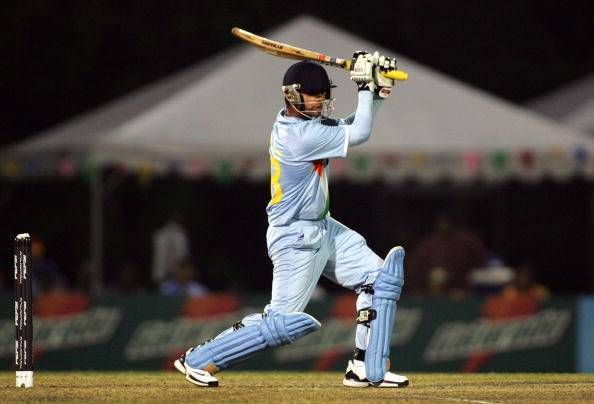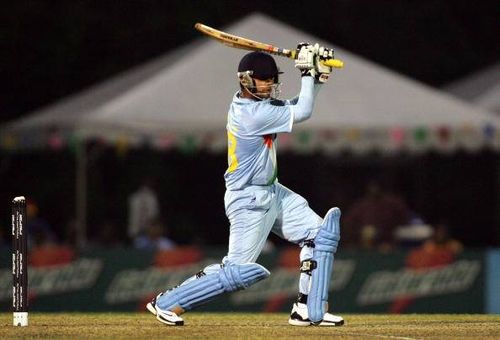
Current stars talk about the significance of ICC U19 Cricket World Cup

As the 11th edition of the ICC U19 Cricket World Cup in Bangladesh from 27 January to 14 February 2016 draws near, current international captains like India’s Virat Kohli reflect on how their participations in past events have helped them grow as cricketers.
An opportunity for everyone to showcase their talent: Kohli
Kohli, who led India to victory in the 2008 edition in Malaysia, was also a member of Mahendra Singh Dhoni’s teams that won the ICC Cricket World Cup 2011 and the ICC Champions Trophy 2013.
As one of the very few cricketers to have won three ICC titles, Kohli has an opportunity to become the first player ever to bag the sport’s equivalent of the Grand Slam in tennis if India wins the ICC World Twenty20 India 2016 at home in April.
Talking of the 2008 tournament, Kohli said the live telecast of the rain-affected final, in which India defeated South Africa by 12 runs via the Duckworth-Lewis method, was a game-changer for his young side.
“It was an opportunity for everyone to showcase their talent because the whole world was watching it,” said the star batsman, who scored 235 runs in six matches at an average of 47 with one century.
“TV coverage helped me in a big way because people back home noticed the guys who were coming up from the young group, the next lot of players who had the character, belief and skill to make it to the next level.”
Kohli said the ICC U19 Cricket World Cup was a very good learning experience.
“It was competitive,” he said. “A lot of players I played against in 2008 are now playing for their respective nations. You get quality players and you get an opportunity to show the world what you have.”
Kohli wished the class of 2016 a successful tournament. “I wish everyone all the very best, especially our India Under-19 team. I hope they go out there and express themselves and show the world what they’re made of and impress everyone.”
This competition was important in preparing me for my future in cricket: Amla
Former South Africa captain Hashim Amla, who played in the 2002 event in New Zealand and scored 191 runs in seven innings, threw his weight behind the event when he said: “I don’t think we have a better success story from the ICC U19 Cricket World Cup like we do in the form of Kagiso Rabada. He was one of the highlights from the competition in 2014 and today he continues to lead the way with performances for the Proteas.
“Personally for me, this competition was important in preparing me for my future in cricket and helped me understand and appreciate some of the challenges and expectations when you follow the path towards international cricket.
“I have no doubt that we will see many more talented cricketers making their mark this year. All the best to everyone participating, give it your best and enjoy every moment.”
The most important stepping stone for any aspiring international cricketer: Mushfiqur
Bangladesh Test captain Mushfiqur Rahim captained his side in the ICC U19 Cricket World Cup 2006 and was his side’s second most successful batsman after Mehrab Hossain (196 runs) with 188 runs. He also dismissed eight batsmen behind the wickets.
Reflecting on the home event, Mushfiqur said: “It was an honour to captain the side. I had made my Test debut before the tournament and as one of the handful of international players in the event, there was this challenge to prove my calibre.
“We had a brilliant team and qualified for the knock-outs for the first time. We were one of the best sides in the competition with the likes of Shakib (Al Hasan), Tamim (Iqbal) and myself in it. Five or six others from that team also went on to represent Bangladesh at senior level. Unfortunately, we lost to England in the quarter-final which was a major disappointment for everyone as we had defeated England almost at will in seven-eight matches on the trot ahead of the World Cup.”
Talking about the significance of the event, Mushfiqur said: “Obviously it is the most important stepping stone for any aspiring international cricketer. You get recognised at this event. There is intense competition at this level as the difference between players and teams are nominal. This tournament is a brilliant scope to assess the future.”
ICC U19 Cricket World Cup played a big role in my development: Holder
Current West Indies captain Jason Holder said he had great memories of the 2010 tournament in New Zealand where his team reached the semi-finals. Holder was the most successful West Indies bowler with 12 wickets at 17.75 runs per wicket.
“I remember being very excited about the possibilities before we left home to go to New Zealand,” he said. “We had a strong and united team which played well together. We felt we had a good chance of becoming the first West Indies team to win the World Cup at this level.
“In the end, we didn’t win the tournament. We had to settle for the third spot, but we played very good cricket and we formed some great friendships as well.
“Loss to Pakistan in the semi-final was not the end of the road. We had to play in the third-place play-off match against Sri Lanka and we made sure we came out with all guns blazing to win that match.
“The ICC U19 Cricket World Cup played a big role in my development. It was my first taste of cricket at the international level with all the preparation and attention to detail that was required.
“We played very far away from home in New Zealand, in conditions that were quite foreign to what we grew up on back home. That made us realise that if you wanted to make it at the highest level, you had to be prepared to make the necessary adjustment and do so quickly.
“There was no time to hang about complaining. You had to get used to the colder climatic conditions and the lovelier pitches and get on with the business of representing the people of the West Indies,” said Holder.
The best foundation for International Cricket: Chigumbura
Elton Chigumbura of Zimbabwe, who took part in two editions in 2002 and 2004, said the ICC U19 Cricket World Cup was the “best exposure to international age-group cricket.”
“It’s the best foundation for international cricket and so it is not surprising that more than 50 percent of players who take part in these tournaments end up playing for their senior national teams.”